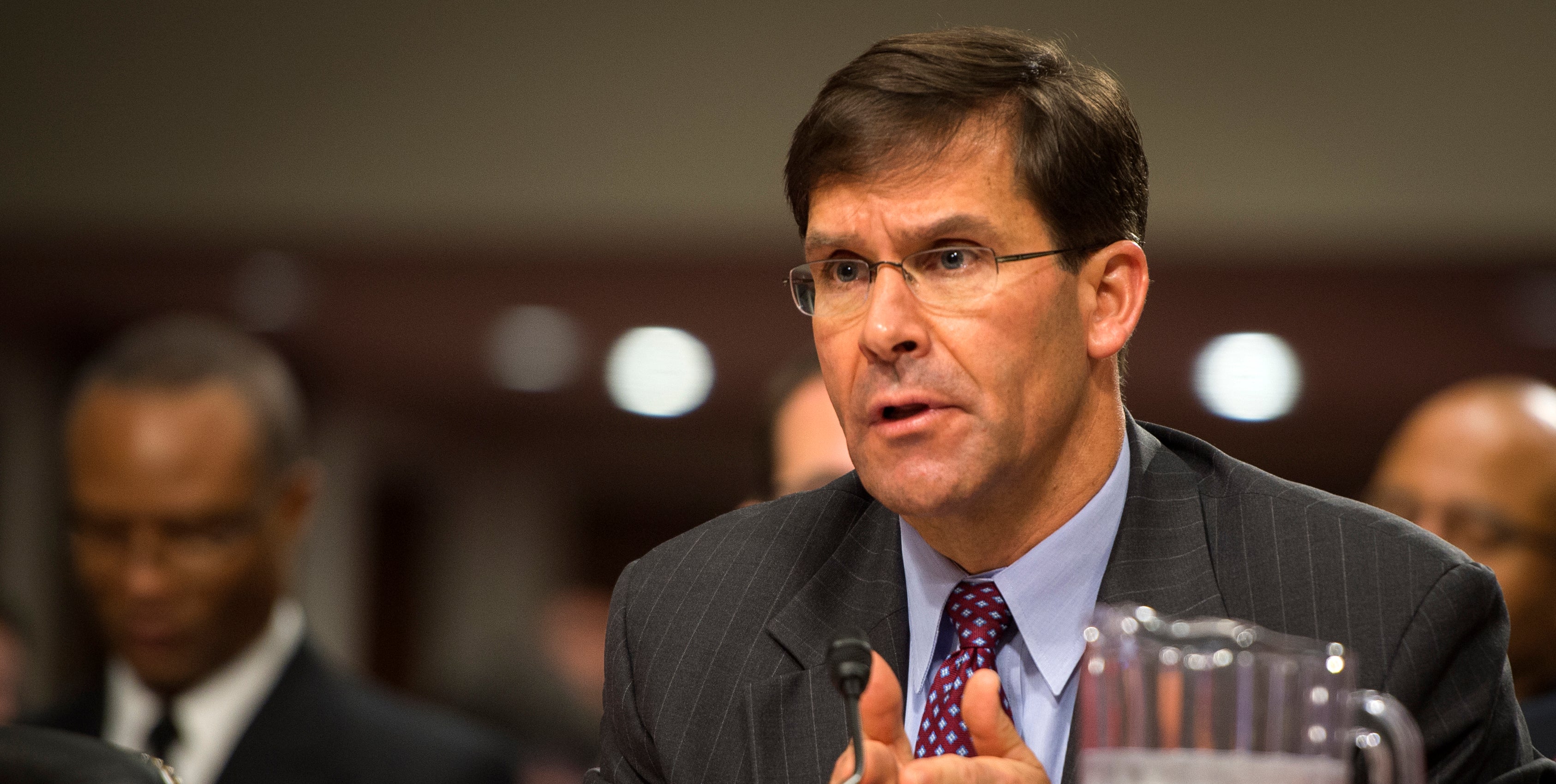Esper Advocates for Better Schools Near Army Posts
Esper Advocates for Better Schools Near Army Posts

Secretary of the Army Mark T. Esper has joined his fellow service secretaries in a request to governors to improve public schools near military bases.
In a letter to the National Governors Association, Esper and the others say improving local schools attended by the children of military families would respond to the most frequently mentioned drawback to military service. Families cite “difficulty assimilating into local school systems following a duty station transfer, the quality of schools available for their children, and the ability of spouses to obtain jobs and sustain careers” as a significant drawback, the letter said.
In a combination of threat and encouragement, the service secretaries say the quality of schools and professional license reciprocity for military spouses will be factors they consider when determining base closing and realignment matters.
The letter, delivered during the recent National Governors Association Winter Meeting in Washington, D.C., is not the first time the Army and Defense Department have warned that the quality of off-post schools can be a factor in basing decisions.
In their letter, the service secretaries write that schools are important because military families relocate many times during a career. “The services endeavor to schedule transfers to minimize impact on the academic year, but this is not always possible. As a result, incoming students face difficulties transferring credits between school systems, adjusting to varied curriculum, and joining sports teams or clubs after the start of the school year.”
One important thing is those extra-curricular activities, the secretaries write. “Exclusion from extra-curricular activities is particularly challenging for our military children, as they are critical to social development and self-esteem. Some school systems recognize this and accommodate military families during transfers. These schools should be commended and emulated.”
DoD and Congress have worked for years to make it easier for military spouses to find jobs after a duty station move, but a solution has proven difficult because states regulate their own rules for professional licenses. “Facilitating military spouses in continuing their work in a new place of residence without delays or extra expense is also important,” the secretaries write. “Spouses in professionally licensed fields such as medical, legal, engineering, education, accounting, or the cosmetic arts face challenges due to delays or cost of transferring licenses to a new state or jurisdiction. Eliminating or mitigating these barriers will improve quality of life for our military families, and ease the stress of transferring duty stations with consideration for long-term career implications.”

